Climate Change Resource List
"Saving our planet, lifting people out of poverty, advancing economic growth... these are one and the same fight. We must connect the dots between climate change, water scarcity, energy shortages, global health, food security and women's empowerment. Solutions to one problem must be solutions for all." - Ban Ki-moon, Former Secretary-General of the United Nations
Suggested Articles
- Working Across Organizational Lines: Grassroots and Grasstops Tensions and Possibilities by Corrie Grosse (2023)
- Addressing Environmental Racism by Robert Bullard (2019) (requires login)
- Effective Climate Change Adaptation Means Supporting Community Autonomy by Anne C. Pisor, Xavier Basurto, Kristina G. Douglass, Katharine J. Mach, Elspeth Ready, Jason M. Tylianakis, Ashley Hazel, Michelle A. Kline, Karen L. Kramer, J. Stephen Lansing, Mark Moritz, Paul E. Smaldino, Thomas F. Thornton, and James Holland Jones (2022) (requires login)
- Climate Change and Human Behaviour Editorial by Nature Human Behaviour (2022) (requires login)
- ICCA Territories of Life Report: Executive Summary by Holly Jonas, Colleen Corrigan, June Rubis, and Leila Vaziri Zanjani (2021)
- Civil Disobedience by Scientists Helps Press for Urgent Climate Action by Stuart Capstick, Aaron Thierry, Emily Cox, Oscar Berglund, Steve Westlake, and Julia K. Steinberger (2022) (requires login)
Suggested Books
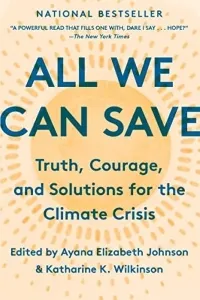
All We Can Save: Truth, Courage, and Solutions for the Climate Crisis edited by Ayana Elizabeth Johnson and Katharine K. Wilkinson (2021)
"... illuminates the expertise and insights of dozens of diverse women leading on climate in the United States--scientists, journalists, farmers, lawyers, teachers, activists, innovators, wonks, and designers, across generations, geographies, and race--and aims to advance a more representative, nuanced, and solution-oriented public conversation on the climate crisis. These women offer a spectrum of ideas and insights for how we can rapidly, radically reshape society."
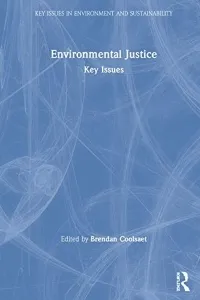
Environmental Justice: Key Issues edited by Brendan Coolsaet (2021)
"... a comprehensive overview of the field of environmental justice. Written by leading international experts from a variety of professional, geographic, ethnic and disciplinary backgrounds, its chapters combine authoritative commentary with real-life cases."
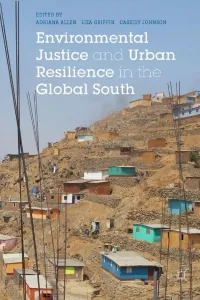
Environmental Justice and Urban Resilience in the Global South edited by Adriana Allen, Liza Griffin, and Cassidy Johnson (2017) (requires login)
"... brings together an interdisciplinary and intergeneration group of scholars to examine the contradictions and tensions that develop as they play out in cities of the Global South through a series of empirically grounded case studies spanning cities of Asia, Latin America, Africa and Eastern Europe."
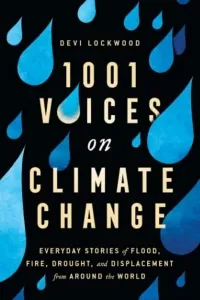
1,001 Voices on Climate Change: Everyday Stories of Flood, Fire, Drought, and Displacement from Around the World by Devi Lockwood (2022)
"Catastrophic wildfires, relentless hurricanes, melting permafrost, and coastal flooding have given us a taste of what some communities have already experienced for far too long, yet we don't often hear the voices of the people most affected. Journalist Devi Lockwood set out to change that, traveling the world, often by bicycle, collecting first-person accounts of climate change. Over five years, covering twenty countries across six continents, Lockwood finds that ordinary people's sharing their stories does far more to advance understanding and empathy than even the most alarming statistics and studies."
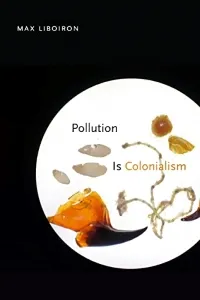
Pollution is Colonialism by Max Liboiron (2021)
"...shows how doing environmental research and activism is often premised on a colonial worldview even when practitioners are working towards benevolent goals. The book lays out key terms and a framework for understanding scientific research methods as ways of being in the world that can align with or against colonialism. Liboiron models an anti-colonial scientific practice aligned with Indigenous concepts of land, ethics, and relations, all while taking up the project of Western science, dealing with issues of compromise and conflicting ideas of good relations."
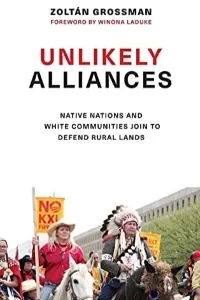
Unlikely Alliances: Native Nations and White Communities Join to Defend Rural Lands by Zoltán Grossman and Winona LaDuke (2017)
"Often when Native nations assert their treaty rights and sovereignty, they are confronted with a backlash from their neighbors, who are fearful of losing control of the natural resources. Yet when both groups are faced with an outside threat to their common environment -- such as mines, dams, or an oil pipeline -- these communities have unexpectedly joined together to protect the resources. Some regions of the United States with the most intense conflicts were transformed into areas with the deepest cooperation between tribes and local farmers, ranchers, and fishers to defend sacred land and water."
Suggested Videos
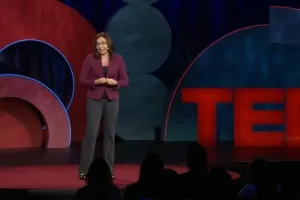
The Most Important Thing You Can Do to Fight Climate Change: Talk About It by Katherine Hayhoe (2019)
"Hayhoe shows how the key to having a real discussion is to connect over shared values like family, community and religion -- and to prompt people to realize that they already care about a changing climate. "We can't give in to despair," she says. "We have to go out and look for the hope we need to inspire us to act -- and that hope begins with a conversation, today."
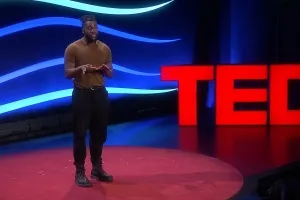
How to Find Your Voice for Climate Action by Fehinti Balogun (2022)
"Actor and activist Fehinti Balogun pieces together multiple complex issues -- climate change, colonialism, systemic racism -- in a talk that's part spoken-word poem, part diagnosis of entrenched global problems. Seeing the connections is a way to unlock collective solutions, he says -- and you have the power to reimagine what you think is possible."
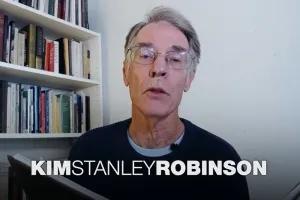
Remembering Climate Change ... a Message from the Year 2071 by Kim Stanley Robinson (2021)
"Coming to us from 60 years in the future, legendary sci-fi writer Kim Stanley Robinson tells the "history" of how humanity ended the climate crisis and restored the damage done to Earth's biosphere. A rousing vision of how we might unite to overcome the greatest challenge of our time."